2020 - 2021: Witnessing the Past: Holocaust Histories
Recorded events are available via:
October 14: All in the Family: Jonas Noreika and the Quest for Truth about the Holocaust in Lithuania with Silvia Foti and Grant Gochin
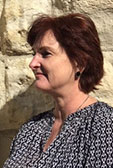
What do you do when you discover that your grandfather, whom you viewed as a national hero, was a Nazi collaborator and mass murderer? This was the question confronting Silvia Foti, an American-Lithuanian from Chicago, after unearthing the shocking truth about her grandfather Jonas Noreika. Foti began a campaign to set the historical record straight alongside Grant Gochin, a Lithuanian Jewish American whose family was at the receiving end of Noreika’s murderous actions. At this live virtual event, the descendants of the perpetrator and the victim discuss their efforts to challenge the official World War II narrative in Lithuania and to secure historical justice.
Foti is a journalist, activist, and teacher of high-school English. Gochin, a Californian diplomat and wealth manager, has long been actively involved in Jewish affairs, especially those pertaining to Lithuania.
The event will be in the form of an interview conducted by UC San Diego Professor of literature Amelia Glaser.
Registration closed.
November 5: Kristallnacht on Film: From Reportage to Reenactments, 1938-1988 – with Lawrence Baron
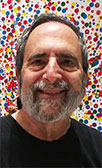
What is the visual evidence of the brutal pogrom that shattered Germany’s remaining Jewish community in November 1938 and that was euphemistically labeled "Crystal Night"? Contemporary newsreel reports featured condemnations of the attack by prominent contemporaries and stills of the destruction. Later, documentary and feature films dramatized the November pogrom with the help of reenactments, photographs, and survivor interviews. It was only with the discovery of German home movies of Kristallnacht that authentic footage appeared in documentaries made to commemorate the 50th anniversary of the pogrom. In this talk Lawrence Baron reconstructs an intriguing chapter of recent Jewish, German, and film history. Professor Emeritus at San Diego State University, Baron is the author and editor of four books including The Modern Jewish Experience in World Cinema (Brandeis University Press: 2011) and Projecting the Holocaust into the Present: The Changing Focus of Contemporary Holocaust Cinema (Rowman and Littlefield: 2005). His contribution to Holocaust Studies was profiled in Fifty Key Thinkers on the Holocaust and Genocide (Routledge: 2010).
Link: Kristallnacht on Film
January 21: Yiddish Glory: The Lost Songs of World War II with Anna Shternshis and Psoy Korolenko
The Lou Dunst Memorial Lecture
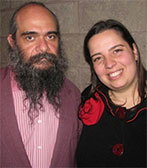
At the height of World War II, a team of Soviet scholars embarked on an ambitious goal to collect recently written songs dealing with the Holocaust. Lost until the early 1990s, these songs were rediscovered and recorded with an ensemble of recognized soloists. Thanks to the painstaking labor of Anna Shternshis and the talent of Psoy Korolenko, audiences worldwide can now enjoy and reflect upon this treasure trove of songs that offer a precious glimpse into an unfolding tragedy and the artistic reaction to it.
Shternshis is the Al and Malka Green Professor of Yiddish and Diaspora Studies at the University of Toronto and the author of “When Sonia Met Boris: An Oral History of Jewish Life under Stalin.” Psoy Korolenko is a prominent songwriter and singer and a philologist and critic who holds a Ph.D. in Russian literature. In 2018, their joint project “Yiddish Glory” was nominated for a Grammy.
Link: Yiddish Glory: The Lost Songs of World War II with Anna Shternshis and Psoy Korolenk
February 17: Sexual Barter in Times of Genocide: Reflections on Sexual Violence, Agency, and Sex Work with Anna Hajkova
With support from the LGBTQIA+ Living and Learning Community at Muir College
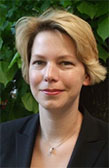
What is everyday life, and how is it experienced under extreme stress? This is the broader question that animates the research of Anna Hájková, an associate professor of Modern Continental European History at the University of Warwick. In her talk, Hájková examines sex work, sexual violence, and coercion of Jewish women and men in concentration camps, ghettos, and in hiding. She is the author of many journal articles and books, including her current project, “Boundaries of the Narratable: Transgressive Sexuality and the Holocaust.” This pioneering study seeks to contribute to our understanding of gender and sexual violence during the Holocaust and explores the erasure of narratives of gays and lesbians who were deported as Jews and who subsequently vanished from the historical record.
April 14: “The Last Stage” Film Screening with Marek Haltof
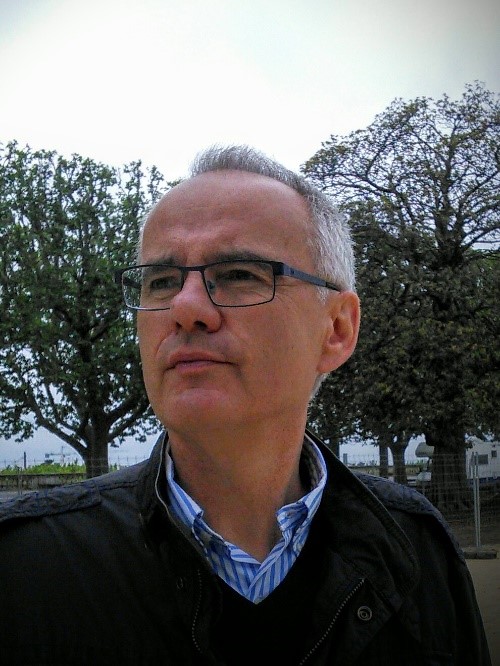
Sponsored by Laurayne Ratner
"The Last Stage" ("Ostatni etap"), directed by the Polish Auschwitz survivor Wanda Jakubowska, is often referred to as the mother of all Holocaust films. Released in 1948, “The Last Stage” is a pioneering work filmed in situ and featuring former prisoners. Not only a stunning work of historical reconstruction, the film is also a radical experiment in feminist cinema. The screening is introduced by Marek Haltof, a professor at Northern Michigan University. Haltof has published widely on the cultural histories of Central European and Australian film. His book “Screening Auschwitz” has received the Wadclaw Lednicki Humanities Award from the Polish Institute of Arts and Sciences of America (PIASA).
May 5: Film as Witness to the Holocaust: A Victims’ Perspective with Leora Bilsky
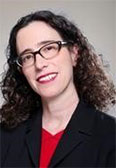
Sponsored by Dan and Phyllis Epstein
Since the 1990s, international criminal law has struggled to find the proper role for victims in mass atrocities trials. It has gradually moved from viewing victims instrumentally in supplying eyewitness testimonies for the prosecution towards recognizing the victims’ agency and seeing them as active participants in such trials. In this lecture, Israeli law professor Leora Bilsky considers the complex relationship of testimony and film at the Nuremberg and Eichmann trials. Her analysis centers on how eyewitnesses understood the new role of the camera in the courtroom. What is ultimately at stake in this investigation is a new conception of testimony.
Bilsky is a professor at the Tel Aviv University Faculty of Law. She is the author of "Transformative Justice: Israeli Identity on Trial" and the forthcoming book "The Holocaust, Corporations and the Law."
Link: Film as Witness to the Holocaust: A Victim's Perspective with Leora Bilsky
June 2: Mengele: Unmasking the “Angel of Death” with David Marwell
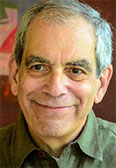
Sponsored by Judi Gottschalk
Who was Josef Mengele? After the end of the Holocaust, the German physician has been increasingly viewed as the personification of supreme evil both in the minds of survivors and the public at large. In this lecture based on his highly acclaimed book “Mengele,” David Marwell untangles history and myth surrounding the man known variously as the Angel of Death and the good uncle, suggesting that Mengele was not so much a uniquely monstrous perpetrator, but more a willing part of a monstrous machine of destruction.
Marwell has had a distinguished career as chief of investigative research at the US Department of Justice, associate museum director at the United States Holocaust Memorial Museum, and director and CEO of the Museum of Jewish Heritage in New York City.
Link: Mengele: Unmasking the "Angel of Death” with David Marwell